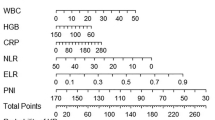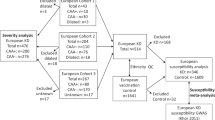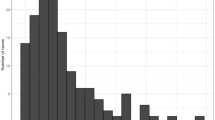Abstract
Genetic polymorphisms influence the magnitude of the cytokine response after an inflammatory stimulus. To determine whether such polymorphisms might play a role in Kawasaki disease (KD), we analyzed white and Japanese children with KD and control populations for two polymorphic loci in which the A allele is associated with high tumor necrosis factor-α secretion. The lymphotoxin-α+250 A/A genotype was overrepresented among white children with KD compared with controls (0.59 versus 0.36;p = 0.013). The tumor necrosis factor-α−308 A/G genotype was overrepresented among whites with KD who had coronary artery abnormalities compared with those with normal echocardiograms (0.36 versus 0.09;p = 0.044). No significant difference was seen at either locus between Japanese children with KD and Japanese controls. The increased frequency of the high secretor alleles in white children with KD suggests that these loci may be related to susceptibility to KD and to outcome after disease.
Similar content being viewed by others
Log in or create a free account to read this content
Gain free access to this article, as well as selected content from this journal and more on nature.com
or
Abbreviations
- KD:
-
Kawasaki disease
- CAA:
-
coronary artery aneurysms
- TNF-α:
-
tumor necrosis factor-α
- LT-α:
-
lymphotoxin-α
- sIL-2R:
-
soluble IL-2 receptor
- IFN-γ:
-
interferon-γ
REFERENCES
Taubert KA, Rowley AH, Shulman ST 1991 Nationwide survey of Kawasaki disease and acute rheumatic fever. J Pediatr 119: 279–282
Yanagawa H, Yashiro M, Nakamura Y, Kawasaki T, Kato H 1995 Results of 12 nationwide epidemiological incidence surveys of Kawasaki disease in Japan. Arch Pediatr Adolesc Med 149: 779–783
Kawasaki T, Kosaki F, Okawa S, Shigematsu I, Yanagawa H 1974 A new infantile acute febrile mucocutaneous lymph node syndrome (MLNS) prevailing in Japan. Pediatrics 54: 271–276
Melish ME, Hicks RM, Larson EJ 1976 Mucocutaneous lymph node syndrome in the United States. Am J Dis Child 130: 599–607
Kato H, Koike S, Yamamoto M, Ito Y, Yano E 1975 Coronary aneurysms in infants and young children with acute febrile mucocutaneous lymph node syndrome. J Pediatr 86: 892–898
Morens DM, Anderson LJ, Hurwitz ES 1980 National surveillance of Kawasaki disease. Pediatrics 65: 21–25
Kato S, Kimura M, Tsuji K, Kusakawa S, Asai T, Juji T, Kawasaki T 1978 HLA antigens in Kawasaki disease. Pediatrics 61: 252–255
Matsuda I, Hattori S, Nagata N, Fruse A, Nambu H 1977 HLA antigens in mucocutaneous lymph node syndrome. Am J Dis Child 131: 1417–1418
Krensky AM, Berenberg W, Shanely K, Yunis EJ 1981 HLA antigens in mucocutaneous lymph node syndrome in New England. Pediatrics 67: 741–743
Krensky AM, Grady S, Shanely KM, Berenberg W, Yunis EJ 1983 Epidemic and endemic HLA-B and DR associations in mucocutaneous lymph node syndrome in New England. Hum Immunol 6: 75–77
Keren G, Danon YL, Orgard S, Kalt R, Gazit E 1982 HLA-Bw51 is increased in mucocutaneous lymph node syndrome in Israel patients. Tissue Antigens 20: 144–146
Fildes N, Burns JC, Newburger JW, Kiltz W, Begovich AB 1992 The HLA class II region and susceptibility to Kawasaki disease. Tissue Antigens 39: 99–101
Shulman ST, Melish M, Inoue O, Kato H, Tomita S 1993 Immunoglobulin allotypic markers in Kawasaki disease. J Pediatr 122: 84–86
Leung DYM 1991 Immunologic aspects of Kawasaki disease: implications for pathogenesis and therapy. Clin Cardiol 14: 11–15
Lin CY, Hwang B 1987 Serial immunologic studies in patients with mucocutaneous lymph node syndrome (Kawasaki disease). Ann Allergy 59: 291–297
Lin CY, Lin CC, Hwang B, Chiang BN 1991 The changes of interleukin-2, tumor necrosis factor and gamma-interferon production among patients with Kawasaki disease. Eur J Pediatr 150: 179–182
Maury CP, Salo E, Pelkonen P 1989 Elevated circulating tumor necrosis factor-alpha in patients with Kawasaki disease. J Lab Clin Med 113: 651–654
Matsubara T, Furukawa S, Yabuta K 1990 Serum levels of tumor necrosis factor, interleukin 2 receptor, and interferon-gamma in Kawasaki disease involved coronary-artery lesions. Clin Immunol Immunopathol 56: 29–36
Lang BA, Silverman ED, Laxer RM, Lau AS 1989 Spontaneous tumor necrosis factor production in Kawasaki disease. J Pediatr 115: 939–943
Leung DYM, Collins T, Lapierre LA, Geha RS, Pober JS 1986 Immunoglobulin M antibodies present in the acute phase of Kawasaki syndrome lyse cultured vascular endothelial cells stimulated by gamma interferon. J Clin Invest 77: 1428–1435
Leung DYM, Geha RS, Newberger JW, Burns JC, Fiers W, Lapierre LA, Pober JS 1986 Two monokines, interleukin-1 and tumor necrosis factor, render cultured vascular endothelial cells susceptible to lysis by antibodies circulating during Kawasaki disease. J Exp Med 164: 1958–1972
Nedwin GE, Naylor SL, Sakaguchi AY, Smith D, Jarrett-Nedwin J, Pennica D, Goeddel DV, Gray PW 1985 Human lymphotoxin and tumor necrosis factor genes: structure, homology and chromosomal localization. Nucleic Acids Res 13: 6361–6373
Louis E, Franchimont D, Piron A, Gevaert Y, Schaaf-Lafontaine N, Roland S, Mahieu P, Malaise M, De Groote D, Louis R, Belaiche J 1998 Tumour necrosis factor (TNF) gene polymorphism influences TNF-α production in lipopolysaccharide (LPS)-stimulated whole blood cell culture in healthy humans. Clin Exp Immunol 113: 401–406
Higuchi T, Seki N, Kamizono S, Yamada A, Kimura A, Kato H, Itoh K 1998 Polymorphism of the 5′-flanking region of the human tumor necrosis factor (TNF)-α gene in Japanese. Tissue Antigens 51: 605–612
Stuber F, Petersen M, Bokelmann F, Schade U 1996 A genomic polymorphism within the tumor necrosis factor locus influences plasma tumor necrosis factor concentrations and outcome of patients with severe sepsis. Crit Care Med 24: 381–384
Stuber F, Udalova IA, Book M, Drutskaya LN, Kuprash DV, Turetskaya RL, Schade FU, Nedospasov 1996 308 tumor necrosis factor (TNF) polymorphism is not associated with survival in severe sepsis and is unrelated to lipopolysaccharide inducibility of the human TNF promoter. J Inflamm 46: 42–50
Pociot F, Briant L, Jongeneel CV, Molvig J, Worsaae H, Abbal M, Thomsen M, Nerup J, Cambon-Thomsen A 1993 Association of tumor necrosis factor (TNF) and class II major histocompatibility complex alleles with the secretion of TNF-α and TNF-β by human mononuclear cells: a possible link to insulin-dependent diabetes mellitus. Eur J Immunol 23: 224–231
Kamizono S, Yamada A, Higuchi T, Kato H, Itoh K 1999 Analysis of tumor necrosis factor-alpha production and polymorphisms of the tumor necrosis factor-alpha gene in individuals with a history of Kawasaki disease. Pediatr Int 41: 341–345
Wilson AG, di Giovine FS, Blakemore A, Duff GW 1992 Single base polymorphism in the human tumor necrosis factor alpha (TNF) gene detectable by NcoI restriction of PCR product. Hum Mol Genet 1: 353
Rosner B 1995 Fundamentals of Biostatistics. Duxberry Press, Boston, pp 368–369
Fugger L, Morling N, Ryder LP, Platz P, Georgsen J, Jakobsen BK, Svejgaard A, Dalhoff K, Ranek L 1989 Nco I restriction fragment length polymorphism (RFLP) of the tumor necrosis factor (TNFα) region in primary biliary cirrhosis and in healthy Danes. Scand J Immunol 30: 185–189
Shimura T, Hagihara M, Takebe K, Munkhbat B, Ogoshi K, Mitomi T, Nagamachi Y, Tsuji K 1995 10.5-kb homozygote of tumor necrosis factor-beta gene is associated with a better prognosis in gastric cancer patients. Cancer 75: 1450–1453
Wang E, Ma WJ, Aghajanian C, Spriggs DR 1997 Posttranscriptional regulation of protein expression in human epithelial carcinoma cells by adenine-uridine-rich elements in the 3′-untranslated region of tumor necrosis factor-alpha. Cancer Res 57: 5426–5433
Kim Y, Rus HG, Fisher SN, Pitha PM, Shin ML 1996 Binding of a protein to an AU-rich domain of tumor necrosis factor alpha mRNA as a 35kDa complex and its regulation in primary rat astrocytes. Biochem J 316: 455–460
Furse RK, Kodys K, Zhu D, Miller-Graziano CL 1997 Increased monocyte TNF-α message stability contributes to trauma patients’ increased TNF production. J Leukoc Biol 62: 524–534
Leverkus M, Yaar M, Eller MS, Tang EH, Gilchrest BA 1998 Post-transcriptional regulation of UV induced TNF-α expression. J Invest Dermatol 110: 353–357
Waage A, Halstensen A, Espevik T 1987 Association between tumour necrosis factor in serum and fatal outcome in patients with meningococcal disease. Lancet 1: 355–357
Nadel S, Newport MJ, Booy R, Levin M 1996 Variation in the tumor necrosis factor-alpha gene promoter region may be associated with death from meningococcal disease. J Infect Dis 174: 878–880
Grau GE, Taylor TE, Molyneux ME, Wirima JJ, Vassalli P, Hommel M, Lambe PH 1989 Tumor necrosis factor and disease severity in children with falciparum malaria. N Engl J Med 320: 1586–1591
McGuire W, Hill AVS, Allsopp CEM, Greenwood BM, Kwjatkowski D 1994 Variation in the TNF-α promoter region associated with susceptibility to cerebral malaria. Nature 371: 508–511
Wilson AG, Symons JA, McDowell TL, McDevitt HO, Duff GW 1997 Effects of a polymorphism in the human tumor necrosis factor α promoter on transcriptional activation. Proc Natl Acad Sci U S A 94: 3195–3199
Kroeger KM, Carville KS, Lawrence LJ 1997 The −308 tumor necrosis factor-α promoter polymorphism effects transcription. Mol Immunol 34: 391–399
Acknowledgements
The authors thank Shelley Bakalis, Chisato Shimizu, and Sachiko Suematsu for collecting and extracting the DNA samples and Shoichi Oyama, Saiseiki Kawaguchi Hospital, for contributing samples.
Author information
Authors and Affiliations
Corresponding author
Additional information
Supported in part by the Crippled Children’s Foundation (M.W.Q.), the American Heart Association Southeast Affiliate (M.W.Q., Q.Z.), the Kawasaki Disease Research Program at the UCSD School of Medicine, the Pediatric Pharmacology Research Unit (NIH #2U01HD31318), and an NIH training grant (#MO1RR00827 to D.E.B.).
This work was presented in part at the Infectious Disease Society of America, Denver, CO, U.S.A., November 1998; the Sixth International Kawasaki Disease Symposium, Waikaloa, HI, U.S.A., February 1999; and the Society for Pediatric Research, San Francisco, CA, U.S.A., May 1999.
Rights and permissions
About this article
Cite this article
Quasney, M., Bronstein, D., Cantor, R. et al. Increased Frequency of Alleles Associated with Elevated Tumor Necrosis Factor-α Levels in Children with Kawasaki Disease. Pediatr Res 49, 686–690 (2001). https://doi.org/10.1203/00006450-200105000-00013
Received:
Accepted:
Issue date:
DOI: https://doi.org/10.1203/00006450-200105000-00013
This article is cited by
-
Immunogenetics of Kawasaki disease
Clinical Reviews in Allergy & Immunology (2020)
-
TNF-alpha G/A308 polymorphism association with nasal polyposis in North part of Iran
European Archives of Oto-Rhino-Laryngology (2018)
-
Inflammation Aggravates Heterogeneity of Ventricular Repolarization in Children With Kawasaki Disease
Pediatric Cardiology (2014)
-
Two Cases of Kawasaki Disease with Hidden Neuroblastoma
The Indian Journal of Pediatrics (2013)
-
The role of TNF-α in a murine model of Kawasaki disease arteritis induced with a Candida albicans cell wall polysaccharide
Modern Rheumatology (2013)



